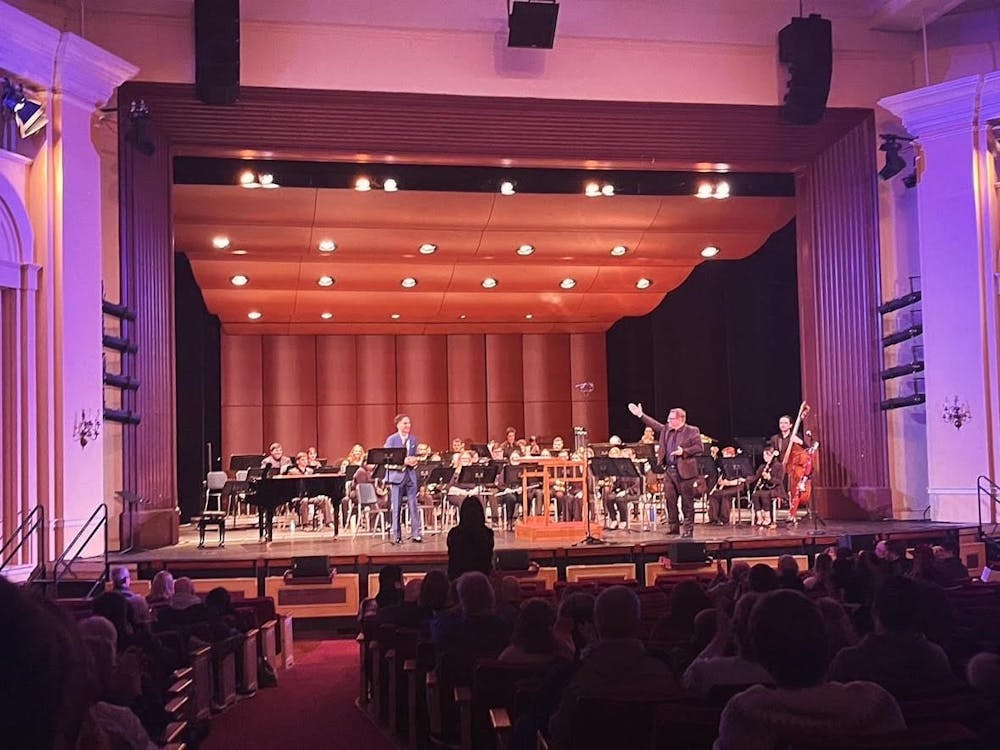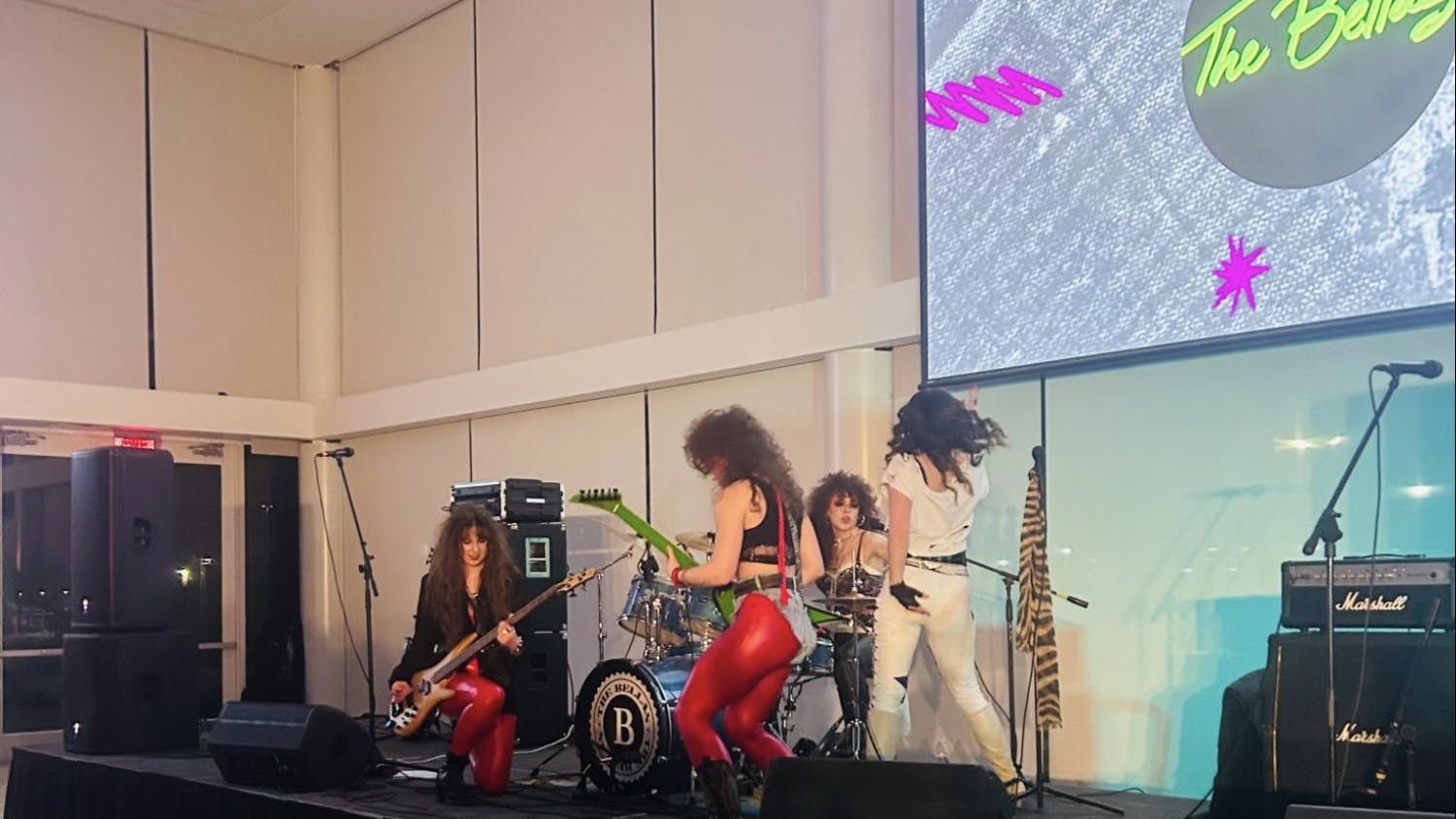By Chiara Picentini
Staff Writer
The College’s Wind Orchestra and Wind Ensemble chose a quiet Thursday night to hold a 20th century-esque performance in Kendall Hall’s auditorium. Professor Eric Laprade and Professor Adam Warshafsky, the two main conductors of the ensembles, hand-picked eight pieces for this March 7 concert, some of which were composed by Leonard Bernstein.
Bernstein was one of the New York Philharmonic’s beloved 20th-century conductors and the composer of the “West Side Story” we all know and love.
The atmosphere was at first relaxed as the auditorium continued to get crowded while the band warmed up. One of the band’s student conductors wasted no time in starting the ensemble off at 7:30 p.m. on the dot. The band suddenly transformed from a mixed chorus of noises to a harmonized musical force.
Professor Laprade shared his secrets on getting the band to perform at such a high level for an event like this.
“TCNJ Wind Ensemble and Wind Orchestra each rehearse twice a week,” Laprade said. “They also meet in small groups for sectional rehearsals. The concert is the result of 6 to 7 weeks of intense preparation.”
The ensemble’s songs of choice included a well-rounded view of Bernstein’s musical palate. Their first piece, “Kaleidoscope Eyes,” started off bright and happy, which came as a smooth transition into the peaceful introduction of the second piece, “Song for My Children.”
In a couple of these songs, the audience could hear Bernstein experimenting with contrasting bright tunes with more ominous ones, especially in the middle of his third piece, “Candide Suite,” which went from a slow and drawn out optimistic melody to a theme that resembled an intro to a battle scene.
Given the pressure of having an audience listen to your every note, senior flute section leader Gianna Marrano explained how an instrumentalist would mentally prepare for such a situation.
“I listen to my hype songs before [the concert],” she said. “I just try to take it as easy as possible throughout the day, kind of warm up at my own pace and then [at] the concert, just kind of take things slow and try not to overstress myself.”
The fifth and sixth pieces, “Voices Shouting Out” and “Concerto in E-Flat” respectively, were especially places where nerves needed to be tamed because they featured a solo instrument. The soloists proved that this failed to be a problem.
Deivy Meija, the senior saxophone soloist for the fifth piece, owned the stage with a gentle and slow melody that captured the emotion of the work. Not to be outdone, Alex Bender, best known for his role in the Detroit Symphony Orchestra, played a grandiose trumpet solo for the sixth piece that had the audience hanging on every note.
While these pieces may have sounded relatively perfect to the average listener, sophomore bass trombonist Ryan Polizzi suggested that performing these types of songs isn’t as easy as it sounds.
“Having a soloist means that even when given melodic material, the ensemble is always the role of the accompanist,” Polizzi said. “So it is easy to play too loud at times, forgetting that we must support instead of compete.”
Marrano also noted that “Kaleidoscope Eyes” and “Concerto in E-Flat” were rehearsed within a relatively short time frame — two weeks to be exact. But the band performed these songs in such a way that it would have been hard to guess that they’d been pressed for time.
The final piece, “Dancing Fire,” made for an unforgettable finale; the band decided to mix it up by making it all over the place with each instrument adding their flair to the piece. The ending could only be described as a loud and excited farewell to the audience.
“[The best part] was being able to simply enjoy the music,” Polizzi said. “When everything’s prepared and it’s the day of the concert, all of the hard work is past you and you can now just focus on making music with people. It’s a delayed gratification I never get tired of.”







